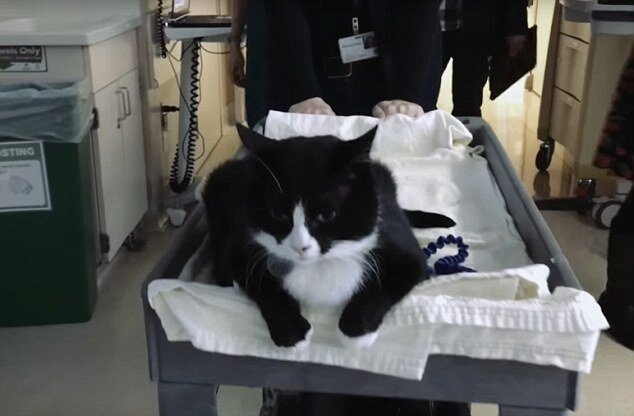Therapy Animals: We're More Than Just Good Looks & Charm!
Last week, I tackled the difference between service animals, emotional support animals, and therapy animals. This week, a quiz! Just kidding.
On a more serious note, do you know how many different types of therapy animals there are out there? Today, we take a step away from learning about canine assisted therapy to focus on some other species and the different benefits they bring. Sometimes they are “friendly visitors,” like the pioneers of social work in the 1800s, other times their work is more therapeutically structured. Either way, therapy animals are cute and often times cuddly, but they bring way more than just their good looks and charm!
There are a lot of great programs locally that work with therapy animals besides canines! Most recently in Harford County, The Center for Trauma, Stress and Anxiety starting an Equine Therapy Program. Equine therapy can assist with treating PTSD, anxiety and depression, along with attachment and other trauma related disorders. There are also many different kinds of Equine Assisted Therapies including therapies for mental health, occupational or physical therapies, and personal/professional development. I have had clients in the past who struggled to connect with play therapy but they had great success working with horses, and I believe that this occurred because of the power of the human-animal bond.
If you know of any other species of therapy animals being used in Harford County, e-mail me so that I can highlight them!
If we expand out of the county into the state and country, there are SO many different species of animals! There’s Napoleon the therapy alpaca and Rojo the therapy llama, both at Mountain Peaks Therapy Llamas and Alpacas. On their website, they offer services such as therapeutic visitation and educational presentations, and share about how Rojo has had hundreds of visits to hospitals, senior communities and schools to provide support and comfort!
Another farm animal known for its therapeutic qualities is the donkey. There are several places in the US and other countries that offer animal assisted therapy with donkeys including The Donkey Sanctuary in England. On their website, they note that working with donkeys help clients to “develop life skills, specifically self-esteem, empathy and managing emotions, in vulnerable children and adults, helping them develop the emotional and psychological capacity to deal with challenging and stressful situations in the real world. Sessions with the donkeys also help develop adaptive and positive behaviour and promote positive attitudinal changes towards donkeys.”
How about cats? Sometimes cats are known for being aloof and fickle towards humans, but Duke Ellington is a therapy cat at UCSF who visits with patients bringing them comfort during their stay at the hospital. Denver Airport has one cat on their squad of therapy animals, Xeli, that provides calming comfort to stressed out travelers.
Cats and canines are not the only comforting airport animals, though! Meet LiLou the pig, a certified therapy animal. LiLou is the first certified Therapy Pig from the Animal Assisted Therapy Program led by San Francisco's Society for Prevention of Cruelty to Animals, completing her training in January 2016. A few months later, she made her first visit to San Francisco Airport, becoming the World's First Airport Therapy Pig! LiLou still has therapeutic visits at the airport, and is still a huge comfort to stressed travelers.
Guineau pigs have been specially noted to have therapeutic benefits for children with autism. A research study published by the Animals & Society Institute found that a small guinea pig could positively influence the quantity and quality of positive social behavior of children with autism.
Other types of therapy animals include rabbits, like LuLu and Teddy Graham, who are certified therapy animals who visit with Alzheimers patients. There is also research on dolphin-assisted therapy, although most support has decreased due to ethical issues and potential harm to dolphins. I will not link to any information on dolphin assisted therapy in this article, but it has been reported as being helpful for clients with autism and down syndrome. There has also been success using a small turtle in therapy sessions (Dr. Mitch Spero) and even fish! Have you ever felt the relaxing effects of a fish tank? Imagine how that would help you open up in a therapy session.
Strong Hope, a residential treatment facility in St. Thomas even offers what they call ethically ran Chelonian Therapy (swimming with turtles). They write on their website: “Connecting with another being and ultimately being fully connected within oneself is the special quality of the chelonian-triggered experience. The feelings that are part of this process – eye contact, connectedness, aliveness and harmony – provide clients with the opportunity to reduce stress, increase relaxation, alleviate depressive states by stimulating production of endorphins and hormones and thereby enhancing recovery.”
Did you know that this many types of animals could be used therapeutically? Did I miss any? Send me your articles about other animal assisted therapy animals at courtney@healinghartwellness.com.





